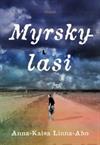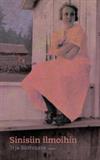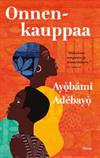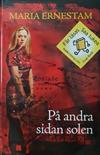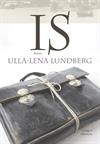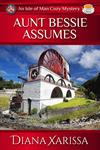The Grasmere and Alfoxden Journals
1 journaler for this copy...
I bought this yesterday in a charity shop in Thirsk, the BHF I think. I picked it up because a few years ago I went to an evening workshop in New Earswick, York about diaries and a woman who worked at Dove Cottage was there talking about Dorothy Wordsworth. This particular copy has an inscription in the front cover: "Bought at Rydal Mount house in Gotoher (not sure on this word) 2003 - lovely holiday in the Lake District - just left Dove Cottage".
I am not into poetry whatsoever, so I come to this book with no interest in poetry and William Wordsworth. But I am interested in people who write diaries/journals, history and the 1800s so this has appeal. The Alfoxden journals are very short, both in total length and length of entry per day, so you'd really read this for the Grasmere journals. I found them fascinating. Yes, if you need page turning thrillers, this isn't going to be for you, but to read about a woman's life at the start of the 1800s, life in the Lake District, and simply put, another human being from the past, it is wonderful. Dorothy Wordsworth spends her days keeping house (a bit, they did have a maid), reading, writing up William's poems, going on walks, fussing about the garden and just saturating herself in the environment where she lives. And the walks aren't a quick bimble down the road, although she may make it sound like that. She is walking miles. Just to fetch the post (well, I feel for her in a keeness for the post, ha ha!), and I love walking myself. For instance, at one point they travel across into Yorkshire, and get to Thirsk by coach. From there they walk to Rievaulx Terrace (she spells it differently) and then to Helmsley by dusk. For those not familiar with the area, this includes getting yourself up Sutton Bank, and the total isn't just an afternoon stroll, we're talking about 15 miles.
Dorothy was William's sister. There is some hero worship going on here, because it's William, William, William, and she's lost when he goes off on trips. Dorothy never married, in fact she stayed living with her brother even when he was married. I suppose she was so full of her brother that she could see no other man. In the introduction and notes there was mention of someone who had once theorised incest between the two. I suppose it depends on your definition, it's not always dodgy sex and curly tailed children, but there is definately a dependency coming through that is like a life partner. A few years ago I went to an evening's talk/discussion led by a woman who worked at Dove Cottage in the Lakes and had come over to York. It was about journals, real and fictional, thoughts on do we even have a right to read them when they were never meant for publication etc, and obviously Dorothy's work was discussed at length, which is another reason I've wanted to read this. She mentioned that the day before William was married, Dorothy had written a long entry which was then scribbled out. Everything in the diary is pleasant about the wife, Mary, although she does mention a couple of times that Mary is getting fat! With technology they were able to look under the scribbles and read what she'd written - it's not in this book unfortunately, but I'm sure she'd said it was full of woe and paranoia. Should we have even peeked if it had been scribbled out?
As well as describing her life, she describes people they come across, and we also see some of the social conditions for people, because there are a lot of poor people travelling through the area who have to resort to begging. Some with sad tales or starved looking children. One guy talking about his travels on the sea and the tragedy he'd seen. One on a ship and a lad being left with the pigs and being half eaten (heck!). But the descriptions about the poor are honest. There's none of this Victorian moralising -oh the poor are poor because they're lazy/stupid/thieves etc etc... There is empathy in Dorothy; she can see that they are victims of circumstance, at one point she even mentions how lucky they are that they're in reasonable circumstances and not pushed to such a life. I liked that in her. In turn I think we don't know we're born these days. Without central heating they suffered with the cold, if people couldn't earn they really suffered and had to beg. And illness... man. They have a lot of crippling headaches and colds, and she mentions toothache which doesn't bare thinking about. They didn't have modern dentistry, often it was a case of take laudenum and hope it goes away or go visit the blacksmith (shudder).
Dorothy was William's sister. There is some hero worship going on here, because it's William, William, William, and she's lost when he goes off on trips. Dorothy never married, in fact she stayed living with her brother even when he was married. I suppose she was so full of her brother that she could see no other man. In the introduction and notes there was mention of someone who had once theorised incest between the two. I suppose it depends on your definition, it's not always dodgy sex and curly tailed children, but there is definately a dependency coming through that is like a life partner. A few years ago I went to an evening's talk/discussion led by a woman who worked at Dove Cottage in the Lakes and had come over to York. It was about journals, real and fictional, thoughts on do we even have a right to read them when they were never meant for publication etc, and obviously Dorothy's work was discussed at length, which is another reason I've wanted to read this. She mentioned that the day before William was married, Dorothy had written a long entry which was then scribbled out. Everything in the diary is pleasant about the wife, Mary, although she does mention a couple of times that Mary is getting fat! With technology they were able to look under the scribbles and read what she'd written - it's not in this book unfortunately, but I'm sure she'd said it was full of woe and paranoia. Should we have even peeked if it had been scribbled out?
As well as describing her life, she describes people they come across, and we also see some of the social conditions for people, because there are a lot of poor people travelling through the area who have to resort to begging. Some with sad tales or starved looking children. One guy talking about his travels on the sea and the tragedy he'd seen. One on a ship and a lad being left with the pigs and being half eaten (heck!). But the descriptions about the poor are honest. There's none of this Victorian moralising -oh the poor are poor because they're lazy/stupid/thieves etc etc... There is empathy in Dorothy; she can see that they are victims of circumstance, at one point she even mentions how lucky they are that they're in reasonable circumstances and not pushed to such a life. I liked that in her. In turn I think we don't know we're born these days. Without central heating they suffered with the cold, if people couldn't earn they really suffered and had to beg. And illness... man. They have a lot of crippling headaches and colds, and she mentions toothache which doesn't bare thinking about. They didn't have modern dentistry, often it was a case of take laudenum and hope it goes away or go visit the blacksmith (shudder).

